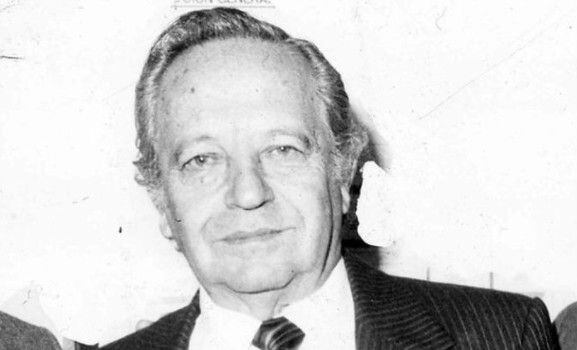
The Undersecretary for Human Rights, Population and Migration, Alejandro Encinas Rodríguez, published on his social networks that on March 22 he received the file in London of reports of missing persons during the period known as the Dirty War.
This period took place in Mexico during the mid-1960s until the 1980s, when the Mexican government led by the Institutional Revolutionary Party (PRI), through the Federal Directorate of Security (DFS), carried out the disappearance of hundreds of people associated with different social movements.
The government in those years maintained a severe repression against any group that was against the order established by the PRI government. Military repression, espionage, kidnappings and torture, as well as extrajudicial executions, were the tactics used by the authorities to suppress protesters.
Because President Andrés Manuel López Obrador pledged to clarify the matter as part of the Fourth Transformation, a Truth Commission was drawn up through the signing of a decree on October 2, 2021, which seeks to provide certainty of the disappearances caused by the state. Mexican from the 60s to the 90s.

This Commission was composed of experts selected by Alejandro Encinas who will review the archives of institutions related to repression to locate files related to human rights violations.
On the afternoon of March 22, she shared that Amnesty International's Executive Director, Edith Olivares, delivered her file in London: “At the request of @Busqueda_MX of the documentation that safeguards and compiles reports of enforced disappearance during the dirty wars in Latin America. Today, the executive director, Edith Olivares of @AmnistiaOnline delivers her archive in London.”
“I thank @AIMexico for providing this documentation, which will undoubtedly be a great contribution to the work of the so-called Dirty War Commission”, concluded the undersecretary.
However, the release and obtaining of documents relating to the Dirty War have been extremely slow. In 2019, the president also issued a decree forcing the agencies to include their files in the General Archive of the Nation (AGN) discussing political and social repression, but only the CNI has released one document: that of the murder of Emmanuel Buendía.
For his part, in October 2021, Foreign Minister Marcelo Ebrard, head of the Ministry of Foreign Affairs (SRE), asked the Central Intelligence Agency (CIA) to massively declassify a series of documents dealing with the subject.

The Commission “constitutes itself as a special working group to carry out the functions of investigation, monitoring, monitoring, proposing and issuing reports related to the acts of serious human rights violations in the period of political violence from 1965 to 1990”.
The members of the Commission are: Abel Barrera Hernández, human rights activist and anthropologist by profession; Eugenia Allier Montaño, researcher at the UNAM Institute for Social Research; Carlos A. Pérez Ricart, CIDE research professor; David de Jesús Fernández Davalos, activist, former rector of the Universidad Iberoamericana and journalist; and Aleida García Aguirre, historian expert on the subject of torture in Mexico.
It will also be composed of the head of the Ministry of the Interior, Martí Batres, through the undersecretary in charge of Encinas; the Secretary of the SRE, Marcelo Ebrard; the head of the Ministry of Finance and Public Credit (SHCP), Rogelio Ramírez de la O, as well as those in charge of the Executive Committee of Victim Care (CEAV) and the National Commission for the Search of Persons (CNB).
KEEP READING:
Últimas Noticias
Debanhi Escobar: they secured the motel where she was found lifeless in a cistern

The oldest person in the world died at the age of 119

Macabre find in CDMX: they left a body bagged and tied in a taxi
The eagles of America will face Manchester City in a duel of legends. Here are the details

Why is it good to bring dogs out to know the world when they are puppies




